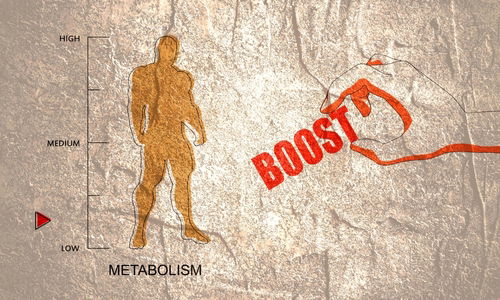Unlocking Weight Loss Plateaus

Metabolic slowdowns that cause weight-loss plateaus are a common hurdle for anyone trying to shed significant amounts of unintended weight gain. Initially, cutting calories can lead to rapid results. But over time, the body adapts to the daily caloric deficit by slowing its metabolism, a survival mechanism that’s most often called the "starvation mode."
While this response conserves energy during periods of food scarcity, it can make sustained weight loss frustratingly difficult. Under typical conditions, the liver manages metabolic processes by transitioning from burning carbohydrates to oxidizing fat during fasting or reduced calorie intake and plays a pivotal role in this process to conserve energy sources.
Researchers at the University of Southern Denmark recently made a remarkable discovery that could reshape strategies for overcoming this challenge. Their work focused on a gene called plasmalemma vesicle-associated protein (PLVAP), which regulates how the liver allocates energy during fasting periods. Suppressing the PV-1 gene in mice disrupted the slowdown associated with calorie reduction.
NOTE: The University of Southern Denmark’s PLVAP study on metabolism was initially published in the journal Cell Metabolism. The team of research scientists included Daniel Hansen, Jasmin Jensen, Christian Andersen, Peter Jakobsgaard, Jesper Havelund, Line Lauritsen, Samuel Mandacaru, Majken Siersbæk, Oliver Shackleton, Jonathan Brewer, Blagoy Blagoev, Nils Færgeman, and Kim Ravnskjær (all from SDU). Collaborators from Japan, the USA, and Finland. Danish scientists suggest that targeting the PV-1 gene could be key to overcoming common barriers by offering new hope for those with significant weight-loss goals.
How Cells Trigger Metabolic Changes
Revolutionary new medical weight loss therapies using compounded meds have shown immense promise in kickstarting weight loss journeys. Nonetheless, many individuals who need to lose substantial weight often face plateaus as they work toward long-term goals. Incorporating insights from the Danish PV-1 gene research could potentially create new treatment or protocols to help overcome this frustrating obstacle by enabling people to achieve sustained results.
Fatty acids, which would normally be processed by the liver, were redirected to muscle tissue, further fueling metabolic efficiency. This unique shift not only improved energy distribution but also enhanced overall physical performance in the test subjects. Such findings hint at a future where weight-loss plateaus could be overcome through targeted interventions, ensuring metabolic efficiency without compromising health.
While more research is needed to translate these findings from mice to humans, the breakthroughs made do present a clear path forward. By preventing the typical slowdown in calorie burning, these solutions could sustain momentum for those striving to lose significant amounts of weight. So, advances in genetic manipulation and metabolic science could soon provide people with the tools they need to achieve measurable long-term success.
Kickstart Your Journey for Weight Control
Prescription medications are transforming weight management for people struggling with obesity or other weight-related health concerns. Groundbreaking treatments, such as compounded receptor agonists, mimic natural hormone responses in the body to promote satiety, curb food cravings, and support better blood sugar control. Unlike crash diets or overly restrictive meal plans, these medications simplify calorie reduction by helping individuals feel fuller with smaller portions and fewer between-meal snacks.
For those battling weight loss plateaus, treatments are particularly effective when coupled with a balanced diet and regular physical activity. New research also suggests that optimizing specific genes, such as PV-1, could further enhance these results by improving metabolic efficiency and overcoming plateaus caused by the body’s adaptation to calorie restriction. Beyond weight loss, innovative medications can enhance metabolic processes and reduce the risks associated with chronic conditions like high blood pressure and cardiovascular disease.
Combined with expert one-on-one coaching, such as that offered by the Metabolic Research Center, these medications provide a personalized pathway to long-term health improvements, addressing the root cause of unintentional weight gain. Visit us at the medical weight loss clinic Fort Wayne to see how our experienced team can help you. All it takes is a quick email or phone call to learn more about MRC’s science-backed strategies. But, don’t’ forget to schedule a free consultation as your first step toward wellness.
By submitting this form, you agree to receive marketing text messages from us at the number provided, including messages sent by autodialer. Consent is not a condition of any purchase. Message and data rates may apply. Message frequency varies. Reply HELP for help or STOP to cancel. View our Privacy Policy and Terms of Service.

